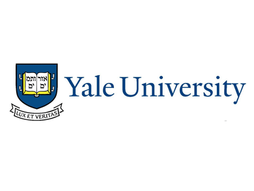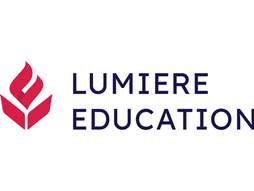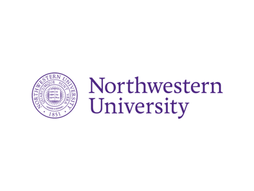13 Online STEM Programs for Middle School Students
Middle school is a great time for students to explore different academic interests, and online STEM programs offer an accessible way to do just that. These programs allow students to dive into subjects like coding, engineering, and science from home, helping them build strong foundational skills before high school. For those already thinking ahead, an online STEM program can be a great way to experience college-level academics early, giving a preview of what future coursework might look like. Many of these programs also offer hands-on projects, mentorship, or even the chance to connect with like-minded peers, making learning both engaging and practical.
If you're interested in challenging yourself academically or want to explore STEM beyond the classroom, an online program can help you do that at your own pace. To make it easier, we’ve put together a list of 13 online STEM programs for middle school students that provide structured learning, expert instruction, and exciting opportunities to grow your skills. We've also covered a host of free, online, paid, and region-specific research opportunities and internships for middle school students here.
The Lumiere Junior Explorer Program is an 8-week online research program designed for middle school students (grades 6-8) to explore their academic interests through an independent research project. Founded by researchers from Harvard and Oxford, the program pairs students 1-on-1 with a Ph.D. mentor who guides them in fields such as computer science, AI & data science, psychology, physics, biology, and environmental studies.
Students develop critical thinking skills, gain exposure to advanced academic topics, and produce a structured research project that can be submitted to academic journals or competitions.
Location: Virtual
Acceptance rate/cohort size: Not specified
Cost: Paid program, financial aid available
Dates: Starts on June 2
Application Deadline: March 9
Eligibility: Students in grades 6-8
The Stanford Middle School Scholars Program (SMSSP) is a tuition-free online program designed to prepare middle school students for a rigorous high school education. The program includes a three-week summer course followed by weekly online after-school meetings in the fall.
Open to low-income students in grades 6 and 7 who reside in the U.S., SMSSP provides an opportunity to engage in advanced coursework, build academic skills, and connect with like-minded peers. While the program does not offer credit, it serves as an academic enrichment experience for students looking to strengthen their foundation in key subjects.
Location: Virtual
Acceptance rate/cohort size: Not specified
Cost: Tuition-free
Dates:
Summer Course – July 7 to July 25
Fall Meetings – August 27 to December 10
Application Deadline: March 20
Eligibility: Low-income students in grades 6-7 attending school in the U.S.
The AI Trailblazers program by Veritas AI is a virtual program that teaches middle school students the fundamentals of artificial intelligence and machine learning. Over 25 hours, you will learn the basics of Python and topics like data analysis, regression, image classification, neural networks, and AI ethics. Students learn through lectures and group sessions with a 5:1 student-to-mentor ratio.
Previous projects done by students have included building a machine-learning model to classify music genres and creating a machine-learning algorithm to provide a custom list of educational resources based on selected specifications.
Application deadline: Rolling deadlines.
Eligibility: Students in grades 6-8
Program dates: 25 hours over 10 weeks (on weekends) during the spring cohort and 25 hours over 2 weeks (on weekdays) during the summer cohort.
Fee: $1990
Financial assistance: Need-based financial aid is available
4. Data Science: The AI Journey by Berkeley Coding Academy
Data Science: The AI Journey is a three-week online summer program that introduces middle school students to data science and artificial intelligence through hands-on learning. You will master Python, explore big data, create data visualizations, and build machine learning models while working on an individual portfolio project.
The program offers small cohorts (average of six students) grouped by age and coding experience, ensuring tailored instruction. You’ll receive 1-on-1 support and complete the program with a Data Science Scholar Certificate and a collection of coding notebooks.
Location: Virtual
Acceptance rate/cohort size: Small cohorts (~6 students per group)
Cost: Starts at $2,089
Dates: July 14 – August 1
Application Deadline: Not specified
Eligibility: Open to middle school students with an interest in coding and AI
Girls Who Code offers two free online summer programs designed to equip students with computer science skills and tech industry exposure in a supportive, inclusive environment. The Summer Immersion Program (SIP) is a two-week live course sponsored by major tech companies like MetLife, Bank of America, and Logitech, covering game design, UX principles, and coding fundamentals. SIP participants also interact with professionals and may qualify for a $300 need-based grant.
The Self-Paced Program, running for six weeks, allows students to learn at their own speed, covering web development, cybersecurity, data science, and AI. Participants gain experience in HTML, CSS, JavaScript, and Python, with access to live events and a peer community. Both programs offer real-world coding experience and networking opportunities, preparing students for future careers in tech.
Location: Virtual
Acceptance rate/cohort size: Open enrollment
Cost: Free
Dates: June 14-28, July 8-19, July 29-August 9 (SIP) | Six weeks (Self-Paced Program)
Application Deadline: Rolling admissions
Eligibility: SIP: 9th-11th grade; Self-Paced Program: 9th-12th grade | Open to students who identify as women or non-binary
Kode With Klossy offers free, two-week coding-intensive camps designed for students of traditionally underrepresented genders in STEM. Participants gain hands-on experience in machine learning, data science, web development, and coding with Apple’s SwiftUI framework. The program is designed to ignite a passion for technology while building a supportive community of like-minded peers. By the end of the camp, you will have developed technical skills, completed real-world projects, and connected with an inspiring alumni network.
Location: Fully virtual, open to scholars globally
Program Dates: To be announced in 2025
Eligibility:
Young women and gender-expansive teens, ages 13-18
Curious, passionate, and community-minded individuals
Cost: Free
The SUCCESS camp at Arizona State University (ASU) introduces middle school students to computing, coding, and engineering software systems through hands-on activities. No prior programming experience is required—just a curiosity about technology. You will explore fields like Artificial Intelligence (AI), Virtual Reality (VR), Game Development, Embedded Systems, and Cybersecurity. Activities include creating games, experimenting with VR headsets, developing AI-based web applications, and building an LED message wall.
Location: Arizona State University, Tempe, AZ
Acceptance rate/cohort size: Not specified
Cost: $325
Dates: May 27 – 30th(Tuesday to Friday, 9:00 AM - 4:30 PM)
Application Deadline: TBD
Eligibility: Students in grades 6-12
IBM’s Introduction to Artificial Intelligence (AI) course, hosted on Coursera, offers a self-paced, beginner-friendly introduction to AI fundamentals. You will explore topics like machine learning, deep learning, and neural networks, with applications in natural language processing (NLP), computer vision, and robotics. The course also covers generative AI models, AI governance, ethics, and industry applications, helping you understand AI’s role in innovation and career pathways.
Location: Virtual (Coursera)
Acceptance rate/cohort size: Open enrollment
Cost: Free
Dates: Self-paced (start anytime)
Application Deadline: None
Eligibility: Open to all; recommended for beginners
The Stanford Pre-Collegiate Summer Institutes is a virtual program where you can explore a single subject in a small, interactive classroom setting. With over 70 course options, you can dive into specialized STEM topics such as Introduction to Data Science, Human-Computer Interaction (HCI), Introduction to Engineering, Logic and Problem Solving, Topics in Bioscience and Programming Courses.
Courses are ungraded and not for credit, allowing you to focus on intellectual exploration without the pressure of exams. Check out the list of courses offered here.
Location: Virtual
Acceptance rate: Highly selective
Cost: $3,050
Dates:
Session One: June 16 – 27
Session Two: July 7 – 18
Application deadline: March 20
Eligibility: Students in grades 8-11
The WASH SRI is a free, research-focused program designed to support female-identifying students in STEM and the humanities. You will participate in academic research under the mentorship of university faculty and graduate students.
The program offers three specialized research tracks:
Introduction to Number Theory – Explore mathematical patterns and structures.
Computational Neuroscience – Study brain function using data analysis.
Demystifying Deep Learning – Learn about neural networks and AI applications.
Over six weeks, students attend weekly 2-3 hour workshops and receive mentorship on publication and future research opportunities.
Location: Virtual / In-person TBD
Acceptance rate: Selective
Cost: Free
Dates: June 22 – July 27
Application deadline: May 21
Eligibility: Female-identifying students in grades 6-12
The UT Dallas Biology Camps offer a flexible, virtual learning experience focused on AP Biology and general biology topics. These camps run throughout the year, providing weekly Saturday sessions (2–5 pm). It's organized by the Department of Biological Sciences.
The AP Biology camps are designed to help you excel in advanced coursework and standardized exams by providing rigorous academic content and hands-on experiences in a virtual setting. These camps are ideal for you if you are currently enrolled in or planning to take AP Biology.
Location: Virtual
Acceptance rate: Competition with high school students
Cost: $200
Dates: Virtual camps run throughout the year on Saturdays (2–5 pm)
Application deadline: Rolling admissions
Eligibility: Middle and high school students interested in AP Biology
The Genetics Summer Camp provides an in-depth exploration of genetics, emphasizing the Central Dogma of Biology (DNA → RNA → Protein) and how genetic information is inherited. The program covers molecular genetics, heritable diseases, and genomics, providing a comprehensive understanding of how traits are passed down through generations.
A key highlight of the camp is the opportunity to present at the EU Genetics Conference, where you'll take on the role of a researcher. You will deliver presentations on heritable diseases, simulating a real scientific conference experience. The organization offers multiple camps for middle school students in various topics like astrophysics, marine biology, computer programming, etc. Check here.
Location: Virtual and in-person at Stanford University or UCLA
Acceptance rate: Selective
Cost: $1,085 – $2,985 (Varies by location)
Dates:
Stanford University: July 13 – July 18
Online: July 14 – July 18
UCLA: July 20 – July 25
Application deadline: Varies based on program selection
Eligibility: Middle school students
The Data Science: R Basics, offered by the Harvard T.H. Chan School of Public Health through edX, serves as the foundation of their Professional Certificate Program in Data Science. Designed for beginners, the program will help you build essential skills in data wrangling, analysis, and visualization using R.
With a focus on practical application, you’ll work with a real-world dataset on crime in the United States to answer key analytical questions. This self-paced course introduces the foundational principles of R, preparing you for more advanced topics such as probability, regression, and machine learning in subsequent courses within the series.
Location: Online (via edX)
Acceptance rate: Open enrollment
Cost: Free (Paid certification available)
Dates: 8 weeks (Self-paced)
Application deadline: Rolling admission
Eligibility: Learners interested in data science and R programming
Stephen is one of the founders of Lumiere and a Harvard College graduate. He founded Lumiere as a PhD student at Harvard Business School. Lumiere is a selective research program where students work 1-1 with a research mentor to develop an independent research paper.
Image Source - Stanford Logo









